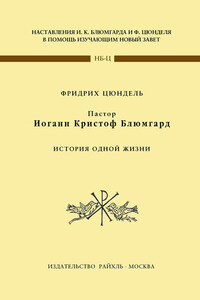CHAPTER I
INTRODUCTORY: THE BOOK OF JOSHUA
With a purely historical book like Joshua before us, it is of importance to keep in view two ways of regarding Old Testament history, in accordance with one or other of which any exposition of such a book must be framed.
According to one of these views, the historical books of Scripture, being given by inspiration of God, have for their main object not to tell the story or dwell on the fortunes of the Hebrew nation, but to unfold God's progressive revelation of Himself made to the seed of Abraham, and to record the way in which that revelation was received, and the effects which it produced. The story of the Hebrew nation is but the frame in which this Divine revelation is set. It was God's pleasure to reveal Himself not through a formal treatise, but in connection with the history of a nation, through announcements and institutions and practical dealings bearing in the first instance on them. The historical books of the Hebrews therefore, while they give us an excellent view of the progress of the nation, must be studied in connection with God's main purpose, and the supernatural interpositions by which from time to time it was carried out.
The other view regards the historical books of the Hebrews in much the same light as we look on those of other nations. Whatever may have been their origin, they are, as we find them, like other books, and our purpose in dealing with them should be the same as in dealing with books of similar contents. We are to deal with them, in the first instance at least, from a natural point of view. We are to regard them as recording the history and development of an ancient nation – a very remarkable nation, no doubt, but a nation whose progress may be referred to ascertainable causes. If we find natural causes sufficient to account for that progress, we are not to call in supernatural. It is an acknowledged law, at least as old as Lord Bacon, that no more causes are to be assigned for phenomena than are true and sufficient to account for them. This law, and the investigations which have taken place under it, have expunged much that used to be regarded as supernatural from the history of other nations; and it will only be according to analogy if the same result is reached in connection with the history of Israel.
In this spirit we have recently had several treatises dealing with that history from a purely natural standpoint. Very earnest endeavours have been made to clear the atmosphere, to expiscate facts, to apply the laws of history, to weigh statements in the balances of probability, to reduce the Hebrew history to the principles of science. The general effect of this method has been to bring out results very different from those previously accepted. In particular, there has been a thorough elimination of the supernatural from Hebrew history. Natural causes have been judged sufficient to explain all that occurred. The introduction of the supernatural in the narrative was due to those obvious causes that have operated in the case of other nations and other religions: – love of the mythical, a patriotic desire to glorify the nation, the exaggerating tendency of tradition, and readiness to translate symbolical pictures into statements of literal occurrences. Hebrew historians were not exempted from the tendencies and weaknesses of other historians, and were ready enough to colour and apply their narratives according to their own views. It is when we subject the Hebrew books to such principles as these (such writers tell us) that we get at the real history of the nation, deprived no doubt of much of the glory with which it has usually been invested, but now for the first time reliable history, on which the most scientific may depend. And as to its moral purpose, it is just the moral purpose that runs through the scheme of the world, to show that, amid much conflict and confusion, the true, the good, the just, and the merciful become victorious in the end over the false and the evil.
The difference between the two methods, as an able writer remarks, is substantially this, that "the one regards the Hebrew books as an unfolding of God's nature, and the other as an unfolding of the nature of man."
The naturalistic method claims emphatically to be scientific. It reduces all events to historical law, and finds for them a natural explanation. But what if the natural explanation is no explanation? What becomes of the claim to be scientific if the causes assigned are not sufficient to account for the phenomena? If science will not tolerate unnatural causes, no more should it tolerate unnatural effects. A truly scientific method must show a fit proportion between cause and effect. Our contention is that, in this respect, the naturalistic method is a failure. In many instances its causes are wholly inadequate to the effects. We are compelled to fall back on the supernatural, otherwise we are confronted with a long series of occurrences for which no reasonable explanation can be found.











